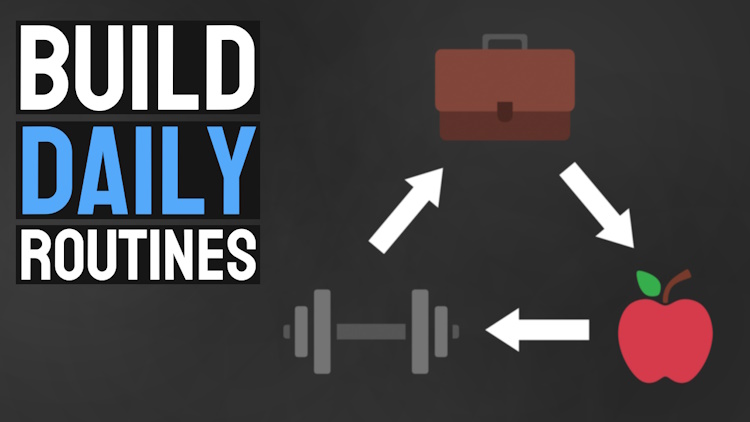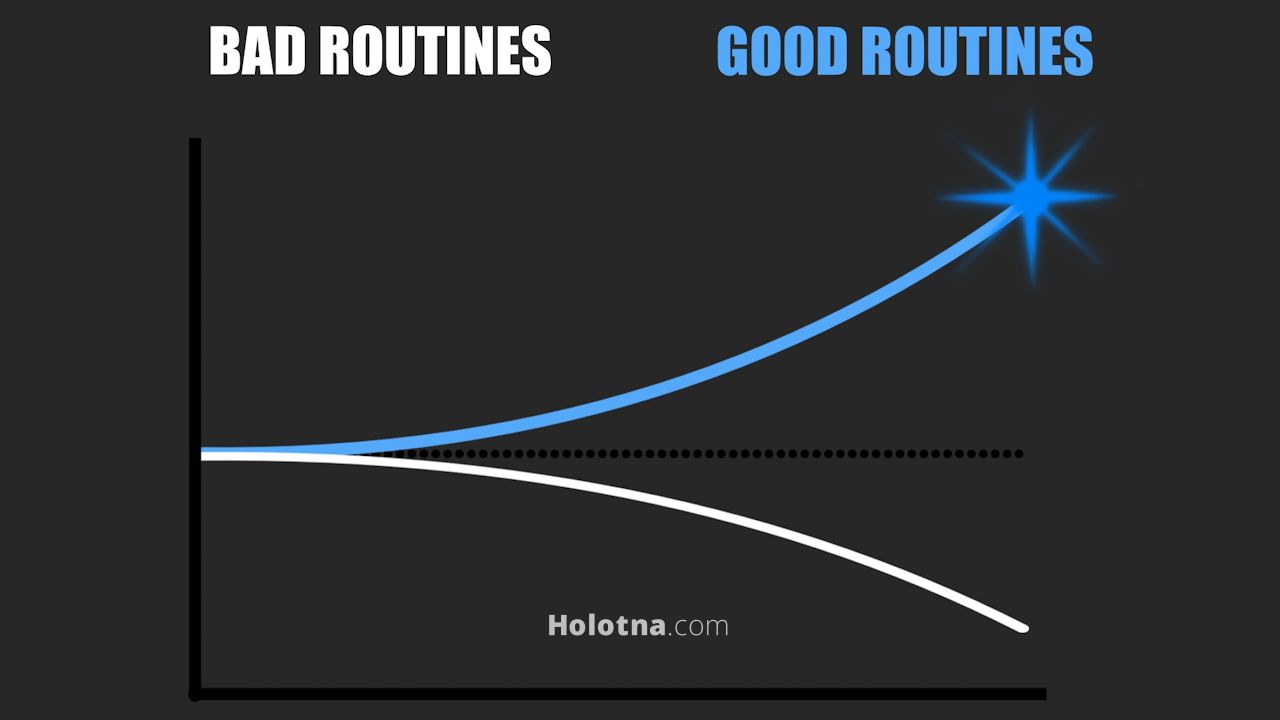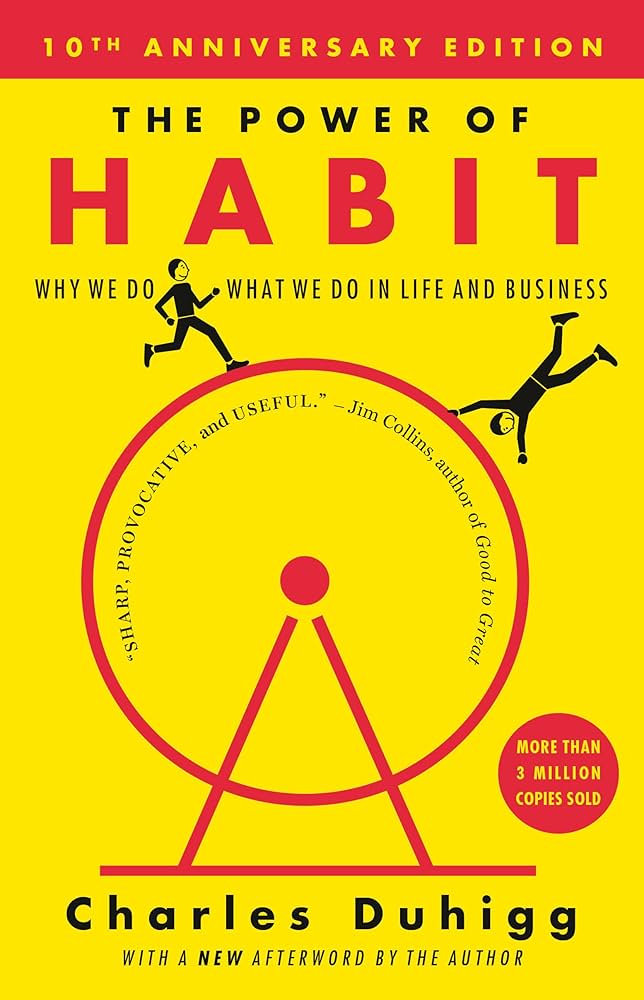Why Routines Are Important - Learn to Build New Routines
In this article you will learn why routines are so important and how you can form good routines. You will also learn how to break the downward spiral caused by bad routines.

Some of the links in this article may be affiliate links, which can provide compensation to us at no cost to you.
What is a Routine?
Routines are the backbone of our daily lives. They are things we do subconsciously every day. We don’t need to think about performing them separately; they come automatically.
Routines define how we act and react to daily situations. They guide us through the day as if on autopilot, without significant effort or conscious decision-making. Most of our actions are based on routines, and they significantly shape the quality of our lives.
Routines are not just daily habits; they can also span longer periods. For example, study routines can help us achieve long-term goals like earning a degree.
Individual automatic actions are called habits, while longer sequences of linked actions are routines.
Routines can change over time. We can actively modify our routines for the better and create new routines that support our goals. Routines are a potent tool that can help us manage our lives, increase efficiency, and improve our well-being.
Understanding and consciously managing them can open the door to a better life. Conversely, bad routines can lead us into a downward spiral.
Why Routines Are So Important?
You might wonder if mindlessly repeating daily tasks makes life boring, monotonous, predictable, and dull. In fact, the answer is no. On the contrary, routines can actually free up time and make life more efficient, leaving time for other pursuits.
When you build habits around essential daily tasks, you automate their execution and save time. This allows you to spend the rest of your day on activities you enjoy. Imagine having already taken care of essential tasks in a short time, leaving the rest of the day for your own interests. You can decide where to invest your remaining energy and time more freely.
Also, you can gravitate towards your goals more efficiently when you put daily effort into doing them. Consistency is the key for success and routines are the key for continuous progress. Furthermore, good habits are building blocks of powerful routine.
Consider a situation where you haven’t established efficient routines, such as in your workday. You start your day chaotically, jumping from one task to another without making significant progress. You react to every stimulus, like emails, immediately. You ponder what to do next because you lack a clear plan or priority list.
You’re constantly making conscious choices, depleting your willpower. By the end of the workday, you may feel exhausted and incapable of using your brain efficiently. This can lead to the formation of bad habits that require little effort, resulting in negative routines over time.
Think of willpower as a rechargeable battery that gets depleted during the day, like an electric car’s battery. Every choice you make during the day consumes this mental resource. As the day progresses, your willpower diminishes, and every small choice you make, like what you should eat and wear, how you react to an email, what you think about a post you saw on social media, and so on, chips away at it.
When your willpower is depleted, you’ll resort to automatic behaviors, often negative ones. These are usually the evening or nighttime routines related to easy, instant gratification, like watching TV, excessive gaming, and indulging in snacks.
Bad Routines Make Your Life Miserable
I used to have a bad routine of playing video games almost every night for several hours. I had become accustomed to escaping to another world after a long, tiring day. This bad routine disrupted my sleep schedule, as I often went to bed around 3:00 AM. Waking up extended close to noon, I felt grumpy about it.
This routine also led to the development of other bad habits, such as an unhealthy diet, excessive alcohol consumption, and snacking while playing. It also robbed me of time the next day when I could have been more productive. Suffice it to say, I wasn’t happy during that period, especially when I already had other problems in my life.
It took me about two years to replace this bad routine with a better one, which included reading books and listening to calming music in the evenings. Sleep started coming at 10:00 PM, and I could wake up at 6:00 AM in a good mood.

I believe I wouldn’t have started writing these articles if I had continued that bad evening routine. I’d probably be in a worse situation now if I had continued down that path.
While I don’t like excessive repetition or an overly systematic approach to life, I believe routines are valuable when we want to achieve our goals and create more freedom. The right amount of repetition and routines can help us improve and get things done, lifting us out of negative spirals.
 Aphorism
Aphorism- John C. Maxwell
Our daily small routines shape our lives. Our subconscious mind influences our lives more than we realize. We might think that all choices are consciously made, but most of our day is governed by our routines, without much thought.
If we underestimate the importance of daily routines, we might end up in the wrong place in our lives. Often, this place is where we don’t want to be, but we don’t know how to get out of it.
Good Routines Build a Better Life
In my morning routine, I start by making my bed, brewing coffee, and turning on my computer after waking up.
Some mornings, I begin with meditation, stretching, or writing down my thoughts in a journal, especially when I have distracting thoughts or emotions that could hinder my focus. My mornings are generally quite similar.
Once the coffee is ready, I move to my computer with my cup of coffee and start working on my main project of the day – currently, it’s writing these articles, which I consider my top work priority.
I put on my headphones every morning and listen to instrumental background music, whether it’s “brown noise,” natural sounds, or fantasy music. It helps me concentrate well with black coffee.
It’s like transitioning into a state of focused attention. My brain has learned that when I taste aromatic, warm coffee, and hear a waterfall, or lo-fi beat, my mind becomes fully focused on the day’s task.
I usually work on my main project for two to four hours in the morning. I take about 10 min break between each hour before continuing. This routine helps me make significant progress on my most critical and mentally demanding work each day.
Once I’ve completed the most important work in the morning, I can confidently focus on less critical tasks, such as building my YouTube channel or upload 3D models for sale.
In the afternoon, I start preparing lunch, as I don’t have breakfast at all. After eating, I often do push-ups or go for a walk to get some physical activity and counterbalance the hours spent in front of a screen. Like many of us, I spend a large part of my day at a computer.
I’ve noticed that mornings are the best time to push the boundaries of my current knowledge, while days and evenings are better for executing tasks using familiar techniques. This is because our capacity to focus and learn new things diminishes as the day progresses.
 Focus more and get things done in shorter period of time
Focus more and get things done in shorter period of timeSo, how can you start forming good routines yourself? Begin by identifying the routines in your daily life, both good and bad, and start replacing the bad ones with better alternatives.
Here are the 6 main steps to forming good routines:
- Identify your routines: Spend at least 20 minutes recognizing your current routines and habits in your daily life. You can even categorize them into good and bad habits.
- Define your main goal: Set clear, realistic goal for what you want to achieve in life. Do you want a promotion or to get into college? Maybe you want to learn a new skill? Make your goal specific, set a realistic timeframe for it, and consider what you need to achieve it. Spend at least 10 minutes on this step.
- Break down your goal: Divide your main goal into smaller, actionable steps and put them in your calendar with deadlines. Knowing what you need to do, where, and when helps you avoid thinking about what to do next and prevents multitasking. Dedicate at least 30 minutes to this planning process. You want to repeat it once a week, so that you can plan each week. The schedule is not meant to be a prison, it’s there for guiding you.
- Put Your Plan into Action: Execute your plan and build consistency by doing the same task at the same time every day. For example, if your goal is to get into college, set a goal to study for an hour in your bedroom every day at 5:00 PM. When you have a specific place and time, you’ll take it more seriously. Visualize yourself doing it and imagine the feeling of accomplishment afterward. You’re already halfway there when you do this. If you don’t believe it, try it, but aim to create a vivid mental picture when you do. There are plenty of studies proving that visualizing things can improve your performance and make it easier for completing them.
- Track Your Progress: Keep track of your progress and visualize every day you complete. You can use a smartphone app or a physical calendar. Seeing your effort concretely makes it easier to turn it into a habit. You don’t need to focus on results, as they will come over time. Many people struggle with forming routines because they set an expectation of when they’ll see results, and when they don’t, they give up. Routines don’t care about results; they just want you to do them daily.
- Persist with Determination: Continue with determination until the routine starts forming, and you no longer need to exert effort to complete your daily task because it has become a habit. This takes at least a month, some studies suggest that even two months, but it gets easier day by day. Once the routine is molded into your life, it stays there and helps you improve, learn, and enhance your life. The effort is always worth it If the routine is aligned with your goals.
Life always brings surprises; you might go on a trip, for example. Many people quit forming routines when their daily life changes because they don’t want to adapt to maintain routines in shifting circumstances. That’s why it’s a good idea to plan, even on vacation. For instance, decide to take your study materials and read for an hour every morning in your hotel room before breakfast, so your routine won’t be disrupted by the trip.
How Routines Change Your Life
Routines create an invisible but potent foundation for our everyday lives. They are chains of various habits we automatically perform each day.
Why are routines important? They make our lives more efficient and help us achieve our goals. Routines free up time in our day and save our energy by allowing us to automate specific tasks and decisions. Good routines can enhance our productivity and well-being, while bad ones can be detrimental.
Bad routines can lead to a negative cycle, like daily gaming, affecting our performance in various areas, sleep, and overall health. Building good routines requires conscious planning and a little effort. Good routines always repay the effort you invest because they become automatic in long-term once established.
By recognizing our existing routines and setting clear goals, we can shape our routines in the desired direction. When routines become habits, they make life easier and enable us to focus on what truly matters.
Routines are the key to a better life because they allow us to automate the steps toward our goals. Routines don’t make life boring; on the contrary, they can make it more meaningful and provide us with the freedom to do the things we love.
I hope you find this information helpful in understanding the significance of routines and how to use them to improve your life. Routines can be powerful tools for personal growth and productivity when harnessed effectively.
 Book suggestion for understanding routines
Book suggestion for understanding routines
